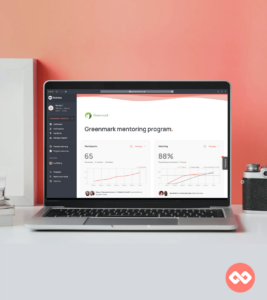How aware of your strengths are you? When’s the last time you took a moment to reflect on your unique skills and abilities, and how they can help you achieve your goals? Research shows that people who know their strengths and utilize them are happier, more productive, and more successful in reaching their objectives.
This in-depth guide will teach you the benefits of knowing and using your strengths, as well as offer practical tips and tools for self-improvement.
Harnessing Your Strengths for Self-Improvement
Do you feel stuck in your personal or professional life? A tried and tested way to gain more clarity and confidence is to focus on your strengths. By identifying your unique skills, you can harness them to accomplish your goals and overcome challenges. Start by reflecting on your past successes and what made them possible. What skills did you use to achieve those goals? Can those same skills be replicated in your current situation? You can also try taking a personality assessment or discussing your strengths with a coach, mentor, or friend.
Pay attention to what energizes you. What tasks or activities do you enjoy doing? What comes naturally to you? These are often indicators of your strengths. Once you have identified your strengths, you can use them to improve areas where you may be struggling. For example, if you are a great communicator, you can use that strength to improve your relationships with coworkers or family members.
Some people may argue that focusing on strengths ignores the importance of improving weaknesses. While it’s true that addressing weaknesses is important, research has shown that focusing on strengths can lead to greater overall improvement. According to a study by Gallup, individuals who focus on their strengths are more likely to be engaged in their work and have higher levels of well-being.
Focusing on your strengths doesn’t mean ignoring your weaknesses, but rather using your strengths to overcome them. By harnessing your strengths, you can build confidence, achieve your goals, and ultimately lead a more fulfilling life.
Benefits of Knowing and Utilizing Your Unique Skills
The benefits of knowing and utilizing your unique skills go beyond personal satisfaction. In fact, research shows that people who use their strengths are more productive, engaged, and successful in their careers. When you’re aware of your strengths, you can focus your energy and time on tasks that will yield the greatest results. You also become more confident, as you know that you have a unique value proposition to offer others.
Moreover, knowing and utilizing your unique skills can also lead to greater job satisfaction and fulfillment. When you are able to use your strengths in your work, you are more likely to feel a sense of purpose and meaning in what you do. This can lead to increased motivation and a greater sense of fulfillment in your career. Additionally, utilizing your unique skills can also lead to opportunities for growth and advancement, as you become known for your expertise in a particular area.
Finding Confidence and Clarity Through Self-Reflection
Self-reflection is a critical component of personal and professional growth. When we take time to think about our experiences, we gain new insights and awareness about our strengths, weaknesses, and goals. Try setting aside at least 30 minutes each day. You could journal, meditate, or engage in a hobby that brings you joy. Use this time to explore your values, priorities, and skills, and how they relate to your current circumstances.
Self-reflection can also help us identify patterns in our behavior and thought processes. By recognizing these patterns, we can work towards breaking negative habits and developing more positive ones. It can also improve our relationships with others. When we understand ourselves better, we are better equipped to communicate our needs and boundaries to those around us and more in touch with ourselves.
It’s important to note that self-reflection can be challenging and uncomfortable at times. It may bring up difficult emotions or force us to confront aspects of ourselves that we don’t like. However, it’s through this discomfort that we can truly grow and develop. Remember to approach self-reflection with kindness and compassion towards yourself, and don’t be afraid to seek support from a therapist or trusted friend if needed.
The positive effects are endless when it comes to self-reflection, and it’s even proven to improve career performance.
Overcoming Self-Doubt Through Self-Discovery
Self-doubt is a common experience, especially when we’re faced with new challenges or uncertainty. However, knowing your strengths can help you combat this negative self-talk. When you’re feeling doubtful or anxious, try to remind yourself of your past successes and how your unique skills contributed to them. Write down an affirmation or mantra that reinforces your self-worth, and repeat it to yourself whenever you need a confidence boost.
Another way to overcome self-doubt is through self-discovery. Take some time to reflect on your values, interests, and passions. When you have a clear understanding of what matters to you, it can help you make decisions that align with your goals and aspirations. Additionally, exploring new hobbies or activities can help you discover new talents and strengths that you may not have realized you had. By focusing on your personal growth and development, you can build a stronger sense of self-confidence and overcome self-doubt.
Using Strengths to Combat Imposter Syndrome
Do you ever feel like a fraud, even when you’ve achieved success or recognition? This is a common experience known as imposter syndrome. One way to combat it is to focus on your strengths. When you acknowledge your skills and abilities, you can remind yourself that you’re not just lucky or in the right place at the right time – you have unique value to offer. You can also surround yourself with supportive people who recognize and appreciate your strengths.
Another way to combat imposter syndrome is to keep a record of your accomplishments. This can be a physical or digital list of your achievements, big or small. When you’re feeling doubtful of your abilities, you can refer to this list as a reminder of what you’ve accomplished and how far you’ve come. It can also serve as motivation to continue striving for success.
Leveraging Narrative to Validate Your Strengths
The premise of the narrative method (Epston and White, 1992) is that we each live our lives based on our experiences or our story.
Have you ever struggled to articulate your strengths to others? One way to overcome this challenge is to craft a narrative that highlights your experiences and accomplishments. Try to identify specific examples of times when you used your strengths to achieve success, and then use this story to showcase your value to potential clients, employers, or collaborators. You can also ask for feedback from trusted colleagues or mentors to refine your narrative and highlight your strengths.
The narrative method can be used to get someone, i.e. a mentee, to tell their story, during which the listener, i.e. a mentor, can tease out the storyteller’s hidden strengths. It’s helpful for the storyteller to hear those strengths recognised by someone else.
If you’ve already taken your strengths test and know what they are, you can see how you’ve already used some of them to overcome obstacles in your past, and how you can continue to harness them for the future (Epston and White, 1992).
Finding and Using Your Strengths
Finding your strengths requires looking beyond your job title or formal education. Your strengths can be anything that you’re naturally good at or enjoy doing. It could be a particular skill, like writing or public speaking, or a personal attribute, like empathy or creativity.
One way to identify your strengths is to think about what you enjoy doing in your free time. You can also think about tasks or projects that come easily to you or that you find particularly fulfilling. Another option is to take a strengths assessment, like this free, scientifically-grounded test you can take and it only takes about 15 minutes to complete. You’ll learn your top five strengths out of 24 in the wisdom, courage, humanity, justice, tempera nce, and transcendence categories. (VIACharacter.org, 2020)
Strengths-Based Questions to Ask Yourself
Work through these questions with your mentoring partner. Yes, they might seem simple, and some even obvious. But take your answers and think about how you can implement or engage in those strengths more frequently. Here are five examples to get you started:
- What do you enjoy doing and why in your spare time?
- What energizes you?
- Describe a successful day. What made it successful?
- How would your close friends describe you?
- How do you stay motivated?
Questions as simple, yet as meaningful, as these can illuminate parts of your day-to-day life that you can easily bolster by incorporating your strengths (Graybeal, 2001). It can be as simple as scheduling a quick catch-up with a colleague you haven’t spoken to in a while (Social Intelligence), or learning a new skill that will make you more efficient at work (Curiosity).
If you’re looking to delve deeper into your strengths, try asking yourself some of these additional questions:
- What are some examples of times when I’ve achieved success, and what strengths did I use to accomplish those goals?
- What are some positive attributes that others have commented on about me, and how can I leverage these strengths to achieve my goals?
- What do others come to you for help with?
- What are some challenges that I have faced in the past, and how have I overcome them using my strengths and resilience?
- What values are most important to me, and how do my strengths align with them?
- What are some opportunities in my life right now that I can take advantage of, based on my strengths and interests?
- How can I use my strengths to build strong and supportive relationships with others?
- What are some ways I can continue to learn and grow in areas where I already have strengths, and how can I apply this new knowledge to achieve even greater success?
- What activities or tasks come naturally and easily to you? What do you find yourself doing effortlessly, without much effort or thought?
- When do you feel most energized and engaged? What tasks or activities give you a sense of flow and focus?
Utilizing Your Strengths
Once you’ve identified your strengths, it’s important to find ways to use them. This could mean pursuing a career that aligns with your strengths or finding opportunities to use them in your current job or personal life.

The image above describes the Japanese concept of ‘ikigai’ – that refers to the intersection of one’s passions, values, talents, and the needs of the world.
In this Venn diagram, what is important to look at are how the circles of what you love, what you are good at, what the world needs, and what you can be paid for all intersect in perfect harmony. This is the sweet spot that is your ikigai, your ‘reason for being’. It’s the feeling of waking up each day with purpose and excitement, knowing that you are living a life that is aligned with your deepest desires and making a meaningful contribution to the world. Ikigai is not just a concept, it is a way of life, a guiding philosophy that encourages us to live in the moment, embrace our passions, and cultivate a sense of purpose that can lead to a fulfilling and joyful existence.
We dive into this a little more in our article, 5 Ways To Save A Mentoring Relationship That Has Stalled.

Identifying your strengths and understanding how to use them could be your number one unrealized weapon.
In fact, by using your strengths you could feel an increase in happiness, improve your relationships, build resilience, strengthen your ability to overcome problems (Hammond, 2010), and enhance your overall well-being (Linley et al., 2010)
Some studies have shown that actively knowing your strengths, predicts how much you use them. Seems obvious, right? But, it’s important to take time and take stock of all the things you’re naturally good at – when you’re aware of them, that’s when you’re more likely to use them (Allan et al., 2019). Then, if you’re comfortable, perhaps think about sharing these with your mentoring partner.
“In an intervention promoting people’s top five character strengths at work, employees reported increased life satisfaction and psychological well-being”
(Forest et al., 2012).
Going Further
These are our favourite two simple, effective ways to help you recognise and use your strengths, especially with your mentoring partner. Whilst there are more complex applications of finding and utilising strengths, those methods are best left to coaching or psychological professionals.
By taking time to explore and utilize your unique skills, you can unlock greater happiness, productivity, and success in your personal and professional life. So, what are you waiting for? Start exploring your strengths today.
It’s important to remember that everyone has different strengths, and what works for one person may not work for another. It’s also important to be open to discovering new strengths and developing existing ones. By regularly reflecting on your strengths and how you can use them, you can continue to grow and improve in all areas of your life.
References:
Allan, B., Owens, R., Kim, T., Douglass, R., & Hintz, J. (2019). Strengths and satisfaction in first-year undergraduate students: A longitudinal study. The Journal Of Positive Psychology, 1-11. https://doi.org/10.1080/17439760.2019.1676458
Epston, D. and White, M. (1992) Experience, contradiction, narrative and imagination: Selected papers of David Epston and Michael White, 1989-1991, Adelaide, Australia: Dulwich Centre
Forest, J., Mageau, G. A., Crevier-Braud, L., Bergeron, É., Dubreuil, P., & Lavigne, G. L. (2012). Harmonious passion as an explanation of the relation between signature strengths’ use and well-being at work: Test of an intervention program. Human Relations, 65(9), 1233–1252.
Graybeal, C. (2001) Strengths-based social work assessment: Transforming the dominant paradigm, Families in Society: The Journal of Contemporary Human Services, 82, 233-242
Hammond, W. (2010) Principles of Strength-Based Practice. Resiliency Initiatives. Retrieved 11 February 2019 from http://www.ayscbc.org/Principles%20of%20Strength-2.pdf.
Linley, P. A., Nielsen, K. M., Gillett, R., & Biswas-Diener, R. (2010). Using signature strengths in pursuit of goals: Effects on goal progress, need satisfaction, and wellbeing, and implications for coaching psychologists. International Coaching Psychology Review, 5, 6–15.VIA Character Strengths Survey & Character Profile Reports. (n.d.). VIA Institute on Character. https://www.viacharacter.org




